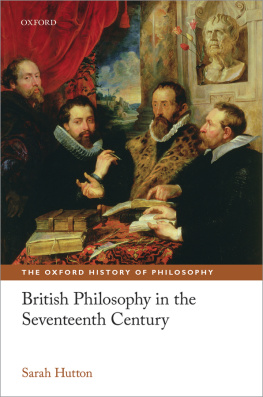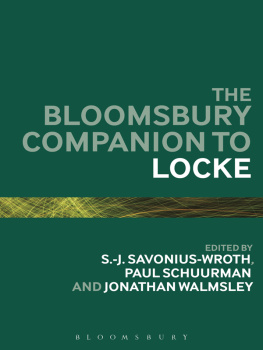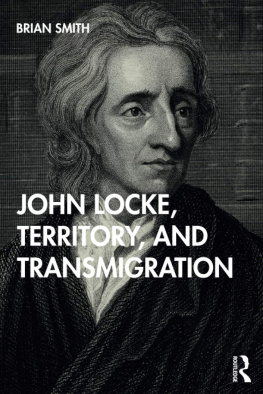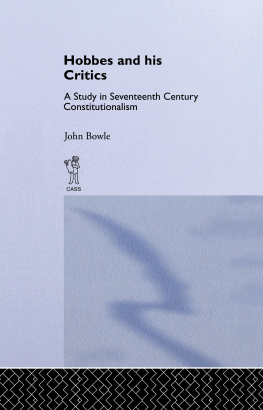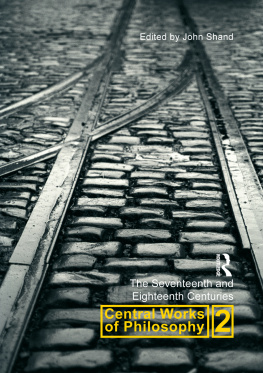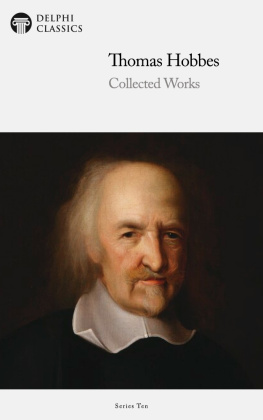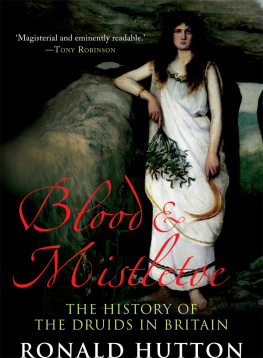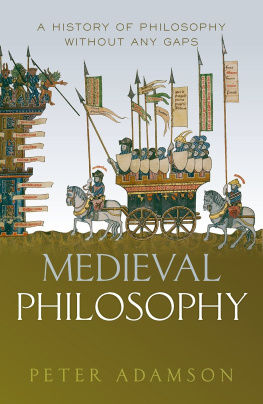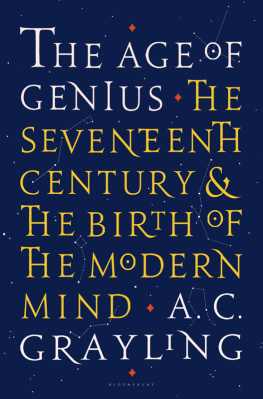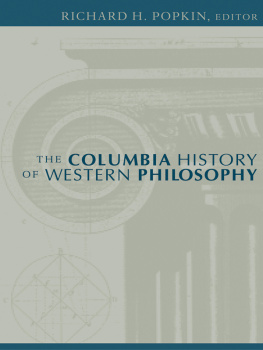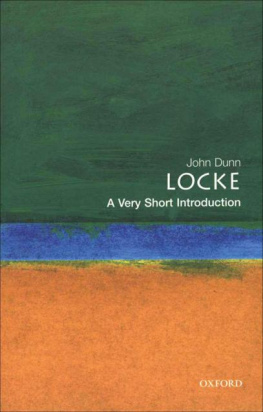THE OXFORD HISTORY OF PHILOSOPHY
The Lost Age of Reason: Philosophy in Early Modern India 14501700
Jonardon Ganeri
Thinking the Impossible: French Philosophy since 1960
Gary Gutting
British Ethical Theorists from Sidgwick to Ewing
Thomas Hurka
British Philosophy in the Seventeenth Century
Sarah Hutton
The American Pragmatists
Cheryl Misak

Great Clarendon Street, Oxford, OX2 6DP, United Kingdom
Oxford University Press is a department of the University of Oxford. It furthers the University's objective of excellence in research, scholarship, and education by publishing worldwide. Oxford is a registered trade mark of Oxford University Press in the UK and in certain other countries
Sarah Hutton 2015
The moral rights of the author have been asserted
First Edition published in 2015
Impression: 1
All rights reserved. No part of this publication may be reproduced, stored in a retrieval system, or transmitted, in any form or by any means, without the prior permission in writing of Oxford University Press, or as expressly permitted by law, by licence or under terms agreed with the appropriate reprographics rights organization. Enquiries concerning reproduction outside the scope of the above should be sent to the Rights Department, Oxford University Press, at the address above
You must not circulate this work in any other form and you must impose this same condition on any acquirer
Published in the United States of America by Oxford University Press 198 Madison Avenue, New York, NY 10016, United States of America
British Library Cataloguing in Publication Data
Data available
Library of Congress Control Number: 2014956884
ISBN 9780199586110
ebook ISBN 9780191059513
Printed and bound by CPI Group (UK) Ltd, Croydon, CR0 4YY
Links to third party websites are provided by Oxford in good faith and for information only. Oxford disclaims any responsibility for the materials contained in any third party website referenced in this work.
Acknowledgements
The research for this book was made possible by two periods of research leave from Aberystwyth University. I was fortunate in being granted membership of the Institute for Advanced Study, Princeton, and a visiting fellowship at Wolfson College Cambridge, which enabled me to benefit from the rich research resources of each. My thanks to all of them.
Among the many people with whom I have profitably discussed my work, particular thanks are due to Leslie Armour, Stephen Clucas, Alan Gabbey, John Rogers, and Ann Thomson, as well as to Mark Burden, Guido Giglioni, John Henry, Richard Serjeantson, and M. A. Stewart for sharing their expertise with me. I also thank Dawn Goldstone for editorial assistance.
I am grateful also for the constructive comments of the referees on earlier drafts of the book, and for the patience and helpfulness of the Oxford University Press philosophy editor, Peter Momtchiloff.
Sarah Hutton
Contents
CHPT | The Cambridge History of Political Thought, 14501700, ed. J. H. Burns and Mark Goldie. Cambridge: Cambridge University Press, 1991. |
CHRP | The Cambridge History of Renaissance Philosophy, ed. Charles Schmitt, Quentin Skinner, and Eckhard Kessler. Cambridge: Cambridge University Press, 1988. |
CHSP | The Cambridge History of Seventeenth-Century Philosophy, ed. Dan Garber and Michael Ayers. 2 vols. Cambridge: Cambridge University Press, 2007. |
CSMK | The Philosophical Writings of Descartes, trans. John Cottingham, Robert Stoothoff, Dugald Murdoch and Anthony Kenny. 3 vols. Cambridge: Cambridge University Press, 198491. |
HUO | The History of the University of Oxford, gen. editor T. H. Aston. 5 vols. Oxford: Clarendon Press, 198497. |
JHI | Journal of the History of Ideas. |
JHP | Journal of the History of Philosophy. |
ODNB | Oxford Dictionary of National Biography. Oxford University Press, 2004; online edn, Sept 2010. |
The seventeenth century was a defining period in British philosophy. This is the period in which for the first time, British philosophy was definitively put on the map, producing philosophers of international stature and lasting influence. Its most famous names, Hobbes and Locke, rank alongside such world-class philosophers as Descartes and Spinoza and Leibniz in the modern philosophical canon. Bacon too belongs with this constellation of great thinkers, although his status as a philosopher tends to be obscured by his status as father of modern science. The significance of the British achievement in philosophy is underscored by the fact that the seventeenth century was a period of transformational change which is normally regarded as the dawn of modernity following the breakdown of the Aristotelian synthesis which had dominated intellectual life since the middle ages.
Whatever the reason why we continue to value early modern philosophers today, it is not at all certain that we value them in the same way as their contemporaries, or that the debates of their time necessarily anticipate the concerns of the present. Furthermore, none of them worked in isolation. As Roger Woolhouse reminds us,
Noteworthy individuals, such as Bacon, Hobbes, or Gassendi, are not isolated mountains in a flat desert landscape. They have an influence on an intellectual scene which encompasses a whole host of lesser thinkers, and they act as focuses for movements of thought which find powerful expression in them before passing on, often changed, or with added force.
To understand where these noteworthy individuals sit in relation to that intellectual scene is the task of the historian. It is my aim in the present volume to relocate these mountains in the context of their times, and to provide a richer picture of the intellectual landscape from which they emerged.
The Present Volume
The history of British seventeenth-century philosophy is not usually treated on its own. It is normally slotted into a broader European narrative about the rise of modern philosophy, which focuses on just a few individuals, who are classified using categories which they themselves would not have recognized (e.g. as empiricists or rationalists, ancients or moderns). The history which I present here attempts a different approach. The basic premise of the present volume is that Bacon, Hobbes, and Locke were not the only philosophers of their time. Nor were they the only ones of enduring influence. I therefore aim to apply a more generous view of context, both by including the also rans of philosophy, and giving some attention to the social, political, and cultural conditions in which philosophers practised. My starting point will be what constituted philosophy for the seventeenth century. I focus on individuals, rather than particular branches of philosophy or philosophical themes, and I treat seventeenth-century philosophy as an ongoing conversation, as a means of setting philosophers in relation to one another. Like all conversations, some voices will dominate, some will be more persuasive than others, and there will be enormous variations in tone from the polite to polemical, fair-minded, matter-of-fact, loquacious, reticent, intemperate. The conversation model allows voices to be heard which would otherwise be discounted. By this means I provide what might be called a thick description of seventeenth-century intellectual culture, setting marginal and major thinkers within a more integrated account of seventeenth-century philosophy which attempts to view it in its own terms, taking account of institutions, and the modes of circulation of ideas. I set the philosophy of Bacon, Hobbes, and Locke in relation to the philosophical context within which it was produced, a context made up of figures normally regarded as minor players in philosophy (e.g. Herbert of Cherbury, Cudworth, More, Burthogge, Norris, Toland) as well as others who have been completely overlooked (notably female philosophers). Crucially, instead of emphasizing the break between seventeenth-century philosophy and its past, the conversation model makes it possible to trace continuities between the Renaissance and seventeenth century, across the seventeenth century and into the eighteenth century, while at the same time acknowledging the major changes which occurred.

